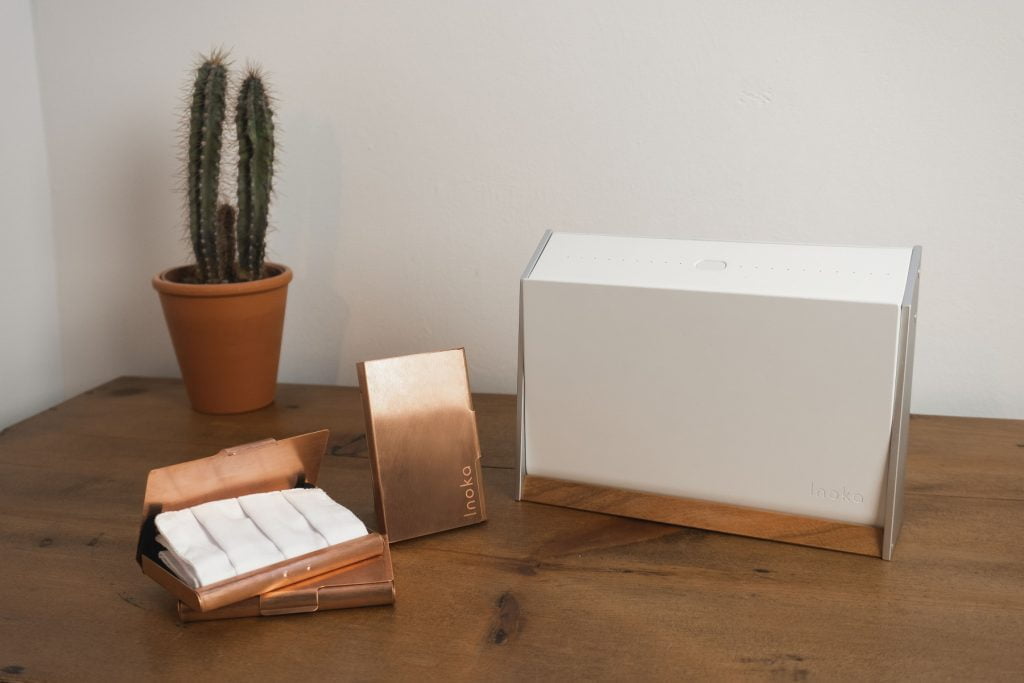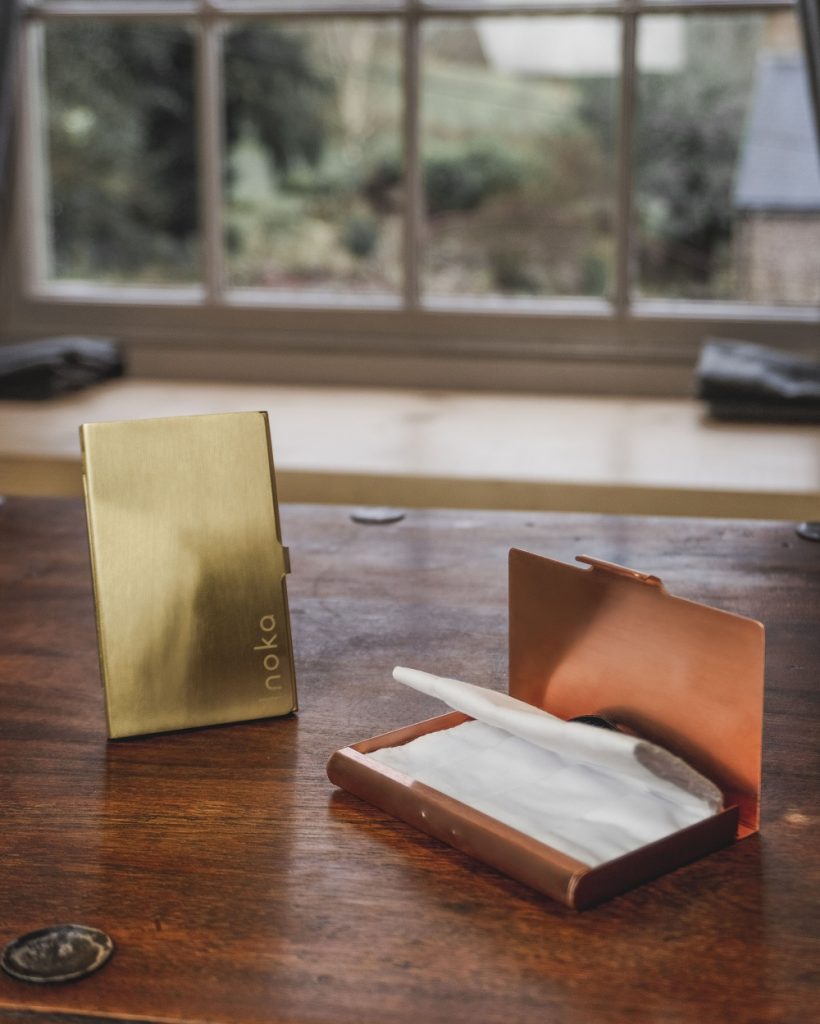This is the story of the founder of Inoka, a UK-based start-up aiming to address the environmental issue of increasing disposable mask use that recent events have necessitated.
By Daniel Yin
It was July 2020, I’ve just received my engineering masters from Imperial College London. With a year of design engineering experience at Xiaomi’s future explorations lab and CES 2019’s best startup Nreal I was offered an exciting opportunity to work as a product design engineer at Apple. This would have been a dream if COVID was not a thing. But we’re in a universe where it is and it was immediately evident to me that there were more problems right now than any time in the past 24 years of my life (and frankly, we are still not on top of them). To be honest I did hesitated a lot but in the end decided that solving these real problems is what I wanted to do.
THE FIRST LITTLE PROOF FOR MYSELF
I first co-founded a company with a close friend who also quit his job (from Dyson) to help address one of the thousands of problems caused by COVID. Dentists are one of the most at risk over the pandemic as they have to work in close proximity with patients and are always in contact with their blood and mucus. As such they have to wear a lot of protective gear, most of which do not fit properly with their specialized equipment. This made their jobs a literal torture and my friend’s father was one of them.
We designed and shipped an adjustable face shield that can fully accommodate dental magnifying loupes that are also super light weight, anti-reflective and less suffocating. The products are being used in hundreds of dental practices across North America and have yet to receive a single less than 5 star customer rating. Recently, we were even nominated for ‘best innovation’ at Canada’s small business award.

A SMALL OBSERVATION THAT UNRAVELED A HUGE PROBLEM
While working at my friend’s place, I noticed that he often randomly leaves his cloth face mask around the home. Upon asking, he had also never washed it since the beginning of the pandemic. This made me slightly worried for him. As a design engineer, I immediately began looking for a solution.
A few days later, I stumbled upon a BBC article discussing the disastrous environmental effects of disposable face masks. After reading the article, I found a group of people on facebook who were planning to clean up different riverbeds across the Thames river and decided to give it a look myself. I was skeptical at first but over 34 used face masks found from just a small stretch of the riverbed near canary wharf proved me wrong. After that I couldn’t stop asking myself: why do people prefer disposable face masks over reusable ones and is there a way to change that?
It turns out that to properly use a reusable face mask, one has to ironically carry them in disposable plastic bags: another source of waste. This is because there were no easy ways to sanitize any existing containers for the mask. Furthermore, one has to clean the mask at 60°C or higher to sufficiently sanitize the mask after every use. A government survey reported that only 32% of us wash them frequently enough and only 13% clean with enough heat: real numbers likely even lower. These bars to safely reuse face masks are simply way too high compared to disposable face masks which can simply be tossed away after use.
This was when I began to realize that while the entire world is using face masks there have yet to be a single complete system for safely carrying, storing and sanitizing face masks for reuse: my friend was not in the minority, not even by far.

SEARCHING FOR THE PERFECT SOLUTION
Believing that there must be a systematic solution for safely reusing face masks that is just as easy as disposable ones. I began rigorously studying covid research articles and speaking to experts in sanitizing technology. I carefully compared the most studied methods for sanitizing face masks including UV germicidal irradiation, hydrogen peroxide bath, steaming and dry-heating.
Out of these, steaming has the highest effect on face mask filtering efficiency. It also requires a separate drying step which lengthens and complicates the process. Hydrogen peroxide bath is far too complicated for everyday use and requires additional consumable chemicals contributing to more container waste. UV’s germicidal wavelength (200-280nm) can practically penetrate nothing but quartz so has very limited effect on inner layers of the face mask.
On the contrary, dry heat at 70°C has none of these problems. In fact, it is so effective and has so little adverse effect on filtering efficiency that it recently became the first and only method for decontaminating and reusing medical face masks in US hospitals officially recommended by the FDA. Furthermore, the method can also be used with many other things that can’t be sufficiently cleaned with other methods like UV light. This includes gloves, wallets and anything that has nooks and crannies or cannot be directly shone on by light.


INOKA WAS BORN
Uncovering this, I assembled a team of experienced designers and engineers to develop a complete system that closely aligns with existing face mask wearing behaviours in western countries and is arguably even easier than using disposable face masks.
By far the most common way of using face coverings is that people carry them in their pockets and put them on when they’re entering an indoor, public space whether it is a convenience store or public transport. This is very dangerous because your pocket can be one of the dirtiest places on you. They’re rarely sanitized and you’re always touching them and holding different items in them. Contaminating the mask in the pocket and then wearing it exposes your face directly to these pathogens.
On the flip side, your face mask which is filtering 7 liters of air every minute in an airborne pandemic can also be the most infected thing on the side facing away from you. Putting this directly into the pocket would contaminate the pocket for up to 7 days and eventually you’ll get them onto your hands.
As such, the Inoka case provides a container to isolate contaminants from the mask and vise versa. Once you arrive back home, just drop the case containing your used mask into the Inoka Mask Safe. The copper alloy case helps to evenly heat and sanitize the face mask while also ensuring that the case itself is safe for reuse.
Our user puts it the best: “finally, a safer and more sustainable option that’s actually easier.”
THANK YOU FOR BEING HERE FOR US
If you’ve read thus far, thank you. I hope this is just the beginning of our relationship. I’d love to learn more about you. The best way to share that and stay connected is to make sure you subscribe to our newsletter — just click here and enter your name and email. If you like what we do and want to support us so we can help solve more of the world’s critical problems please also consider donating for Inoka on our crowdfunding campaign. You can also support by ordering the Inoka mask safe today. If you want to be part of our team of real problem solvers please click here to send us your application.